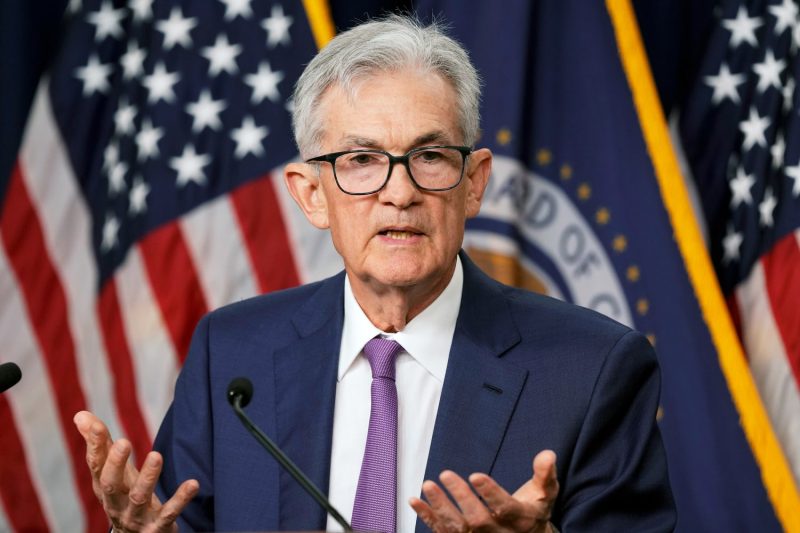Fed Chair Jerome Powell’s recent statement on higher-than-expected inflation has sparked discussions and concerns among economists and market participants. Powell’s acknowledgment that inflationary pressures have been stronger than previously anticipated and his expectation for interest rates to remain stable has raised various implications for the economy and financial markets.
The unexpected surge in inflation has led to speculation about the Federal Reserve’s upcoming policy decisions. Powell’s assurance that interest rates will remain steady indicates a cautious approach towards ensuring economic stability while keeping inflation in check. This stance aims to strike a balance between supporting economic growth and preventing runaway inflation, which could have detrimental effects on consumer purchasing power and overall market confidence.
One of the key concerns arising from the higher-than-expected inflation is its impact on consumer spending and savings. With prices rising at a faster pace, consumers may find it challenging to maintain their purchasing power, leading to potential changes in spending behavior and overall economic activity. Businesses, on the other hand, may face increased costs of production, which could affect profit margins and potentially influence investment decisions.
The stability of interest rates is crucial in this scenario as it influences borrowing costs for businesses and consumers. By keeping rates unchanged, the Federal Reserve aims to provide a sense of predictability and stability in the financial markets, which can help businesses plan their investments and consumers manage their finances more effectively. However, the Fed’s stance also highlights the need for vigilant monitoring of inflationary trends and readiness to adjust policy measures if necessary to address any emerging risks.
Inflation has a ripple effect on various sectors of the economy, including housing, healthcare, and transportation. Higher prices can impact individuals differently based on their income levels and spending patterns. As policymakers navigate the complexities of managing inflation and interest rates, it becomes essential to consider the broader implications on both macroeconomic indicators and individual financial well-being.
Market participants and investors are closely following Powell’s statements and the Fed’s upcoming decisions, as they seek insights into the future trajectory of the economy and financial markets. The interplay between inflation, interest rates, and economic growth requires a delicate balance to sustain long-term prosperity and stability. Powell’s acknowledgment of the current inflationary pressures underscores the importance of proactive and adaptive policy measures to navigate the evolving economic landscape.
In conclusion, Jerome Powell’s remarks on higher-than-expected inflation and the stance on maintaining stable interest rates reflect the Federal Reserve’s commitment to managing economic challenges effectively. The impact of inflation on consumer behavior, business decisions, and overall economic performance necessitates a careful balance of policy tools and strategic foresight. As the economy continues to evolve, policymakers, market participants, and individuals alike must remain vigilant and responsive to changing dynamics to promote sustainable growth and stability.
